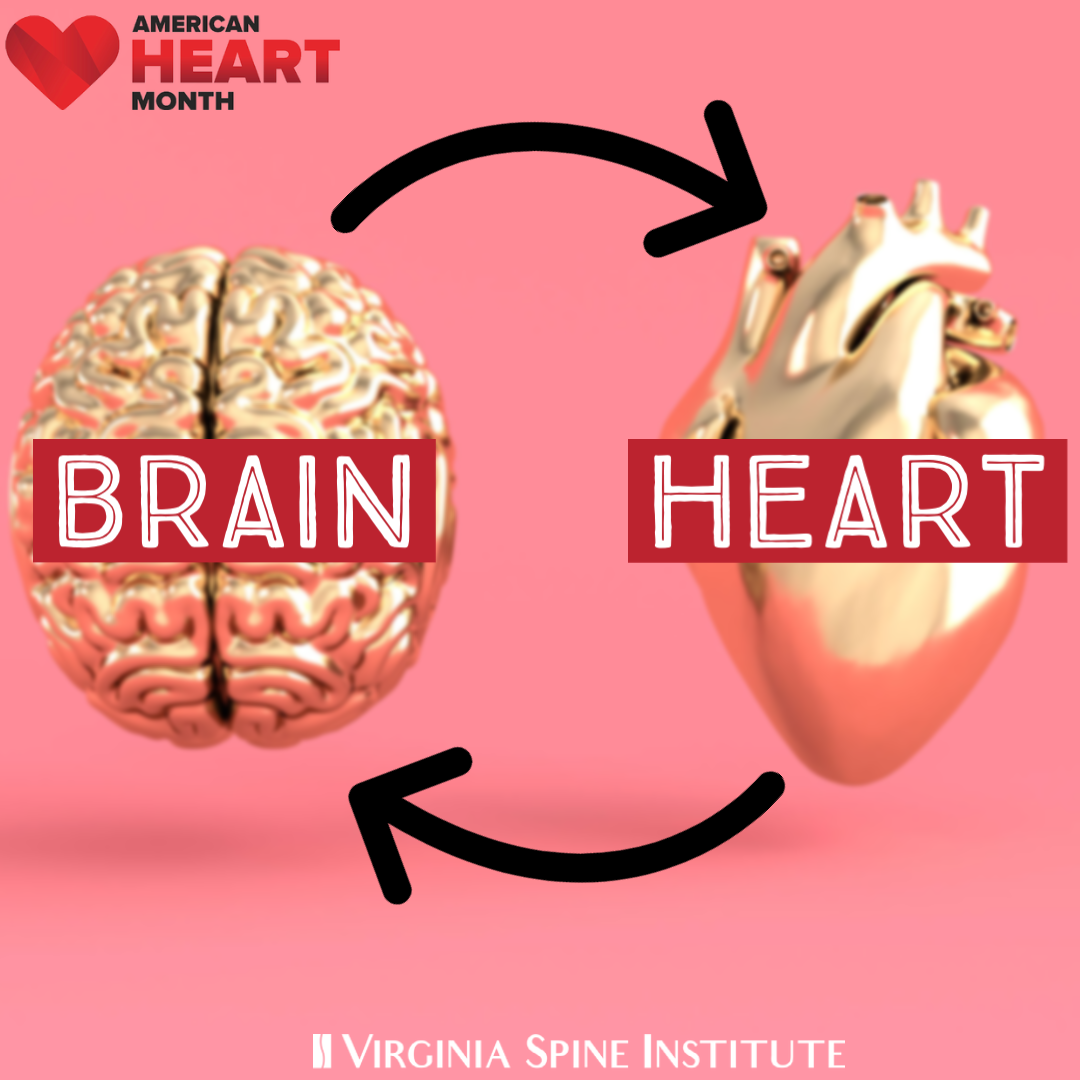
American Heart Health Month: Why Our Neurologist Advocates for Heart Health to Maintain Healthy Brain Activity
While the focus this month is on cardiovascular health, it is important to keep in mind that what’s bad for the heart tends to also be bad for the brain. The brain is supplied by several blood vessels, all arising from the aorta, which pumps blood from the heart to the rest of the body. For example, if the heart is not pumping correctly, the brain cannot get its needed nutrients through the blood supply. If the aorta or other blood vessels on the way to the brain are not open completely, the brain may also not be able to get its blood supply. If clots formed in the heart are pumped to the blood vessels going up to the brain, they may also block the brain’s blood supply. Therefore, in order to take care of your brain, it is also important to take care of your heart.
Inadequate Heart Health Can Lead to Strokes
Strokes are often divided into two categories: ischemic and hemorrhagic. The more common type of stroke, an ischemic stroke, occurs when the blood supply to part of the brain is suddenly disrupted. You can think of a blood vessel as a pipe through which water runs. Over the years, rust, grime, and dirt accumulates in the pipe, limiting the amount of water that can completely get to the top, or the brain, in this case. This long-term type of blood vessel damage is called atherosclerosis. When atherosclerosis affects the blood vessels in the heart, it causes a heart attack. When it affects the blood vessels going to the brain, it causes a stroke. Therefore, all the unhealthy habits that can lead to a heart attack—smoking, having high cholesterol, having high blood pressure, being a diabetic—can also lead to a stroke. To keep your brain healthy, it is therefore extremely important to avoid smoking, keep your cholesterol under control, treat any possible high blood pressure, and watch your sugars closely.
An ischemic stroke can also be caused as a result from a blood clot that forms in the heart and is accidentally pumped through the aorta and into a blood vessel that supplies the brain. This situation is called an embolic stroke. Clots are more likely to form in the heart when it is not pumping correctly, such as when a patient has an irregular heart beat such as atrial fibrillation. Additionally, if the heart is not at its max capacity, such as when a patient has heart failure, the risk of a clot is significantly increased. Therefore, it is important to keep your atrial fibrillation under control and keep your heart in good health to further reduce the risk of a stroke.
Heart & Brain Health are a Two-for-One!
Think again about those pipes taking a constant pounding over many years due to pressure in the water that is far too high. In addition, these pipes are also likely damaged from high cholesterol, smoking, diabetes, and other possible risk factors as above. Eventually, a weak spot in the pipe can burst, and the water can escape outward. This situation is called a hemorrhagic stroke occurs, and it occurs when a blood vessel in the brain or aneurysm coming off such a blood vessel suddenly bursts. These strokes can also be caused by an unhealthy heart and unhealthy blood vessels, especially in patients with high blood pressure.
Therefore, in order to prevent a stroke, taking care of your heart and your blood vessels is crucial. The good news is that by maintaining a health low cholesterol and low sugar diet, exercising, controlling your blood pressure, and avoiding cigarette smoke, you can get a two-for-one: you can keep your heart healthy while also reducing your risk for a stroke.
Topics covered
About the Author
Featured Resources
Insights to Achieve a Pain-Free Life



